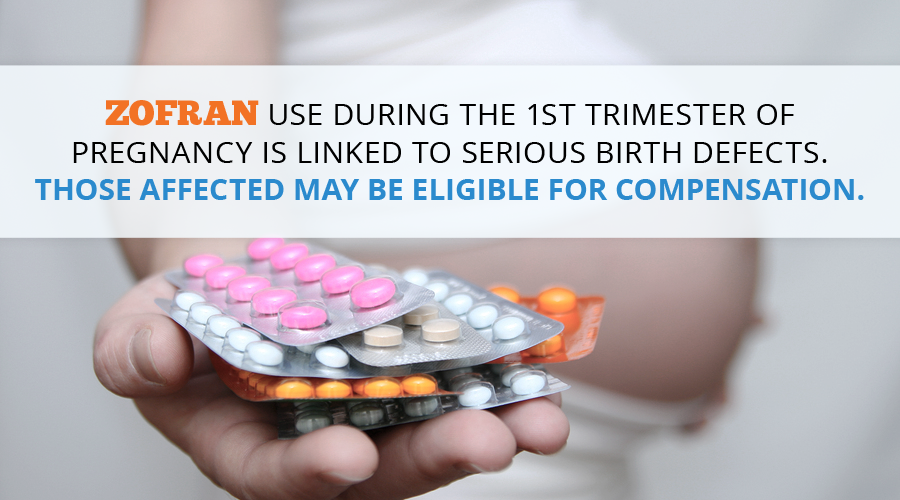Why Are Zofran Lawsuits Being Filed?
Past lawsuits claim:
- The FDA has never approved ondansetron (Zofran) for use by pregnant women.
- GlaxoSmithKline illegally advertised Zofran as a treatment for morning sickness and hyperemesis gravidarum, despite lack of approval.
- GlaxoSmithKline failed to adequately research the safety of Zofran among pregnant women.
- GlaxoSmithKline knew or should have known about the potential for Zofran to cause congenital birth defects.
- GlaxoSmithKline failed to make these risks known to consumers and the medical community, thus preventing women and their families from making educated decisions regarding prenatal health.


